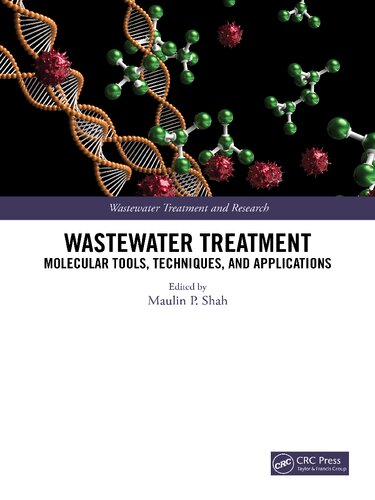

Most ebook files are in PDF format, so you can easily read them using various software such as Foxit Reader or directly on the Google Chrome browser.
Some ebook files are released by publishers in other formats such as .awz, .mobi, .epub, .fb2, etc. You may need to install specific software to read these formats on mobile/PC, such as Calibre.
Please read the tutorial at this link: https://ebookbell.com/faq
We offer FREE conversion to the popular formats you request; however, this may take some time. Therefore, right after payment, please email us, and we will try to provide the service as quickly as possible.
For some exceptional file formats or broken links (if any), please refrain from opening any disputes. Instead, email us first, and we will try to assist within a maximum of 6 hours.
EbookBell Team

4.0
46 reviewsWastewater Treatment: Molecular Tools, Techniques, and Applications providesan insight about the application of different tools and technology for exploring microbial structure-function relationships that involved in WWTPs. From the present day consequence of alarming usable water crysis throughout the globe, an immediate action on water cycle is necessary. Along with other options the waste water recycling is one major opportunity to combat the future scarcity. The book aims to provide a comprehensive view of advanced emerging technologies for wastewater treatment, heavy metal removal, pesticide degradation, dye removal, waste management, microbial transformation of environmental contaminants, etc. It also describes different application of Omic tools in Waste water treatment plants (WWTPs),describes the role of microorganisms in WWTPs, points out the reuse of treated wastewater through emerging technologies, also includes the recovery of resources from wastewater and emphasizes on cutting edge molecular tools for WWTPs. We hope the content of the book will be very much usefull for the community who are directly associated in wastewater management research, people who are associated with environmental awarness programme and the students of UG and PG courses.
Features: